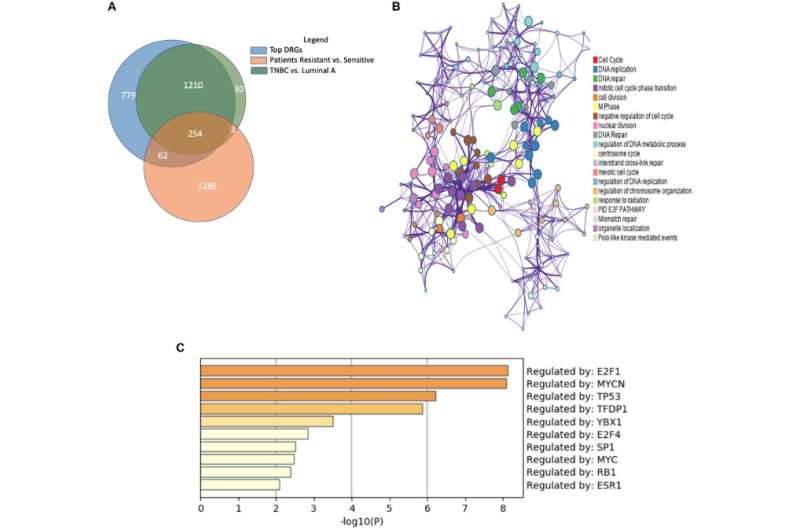Dynamic gene expression analysis identifies novel group of genes that cause endocrine resistance in breast cancer


A research paper titled “A novel group of genes that cause endocrine resistance in breast cancer identified by dynamic gene expression analysis” was recently published in Oncotarget.
Breast cancer (BC) is the most common type of cancer diagnosed in women. Among female cancer deaths, BC is the second leading cause of death worldwide.
For estrogen receptor-positive (ER-positive) breast cancers, endocrine therapy is an effective therapeutic approach. However, in many cases, ER-positive tumors become unresponsive to endocrine therapy, and tumor regrowth can occur after treatment. While some genetic mutations contribute to resistance in some patients, the underlying causes of resistance to endocrine therapy are mostly undetermined.
“Endocrine therapies have been successful at improving cancer outcomes; however, the development of endocrine resistance, or resistance to inhibition of ER actions, remains a roadblock in breast cancer treatment.”
In the current study, researchers from UTHealth Houston, University of Chicago, University of Texas MD Anderson Cancer Center, and the University of Houston explored the dynamic behavior of the entire gene population to identify novel genes that play fundamental roles in the development and progression of endocrine-resistant breast cancer.
“In this study, we utilized a recently developed statistical approach to investigate the dynamic behavior of gene expression during the development of endocrine resistance and identified a novel group of genes whose time course expression significantly changes during cell modeling of endocrine-resistant BC development.”
To better understand the process of acquiring endocrine resistance and its underlying gene expression patterns, the researchers applied their recently developed statistical pipeline to datasets from a public functional genomics repository. They found dynamically regulated genes active in the process of endocrine resistance development and progression.
Their dynamic gene expression analysis identified 34 novel genes that significantly changed during cell modeling of endocrine-resistant breast cancer development. Expression of a subset of these genes was also differentially expressed in microarray analysis of endocrine-resistant and endocrine-sensitive tumor samples. Surprisingly, a subset of those genes was also differentially expressed in triple-negative breast cancer (TNBC) as compared with ER-positive BC.
Source: Read Full Article